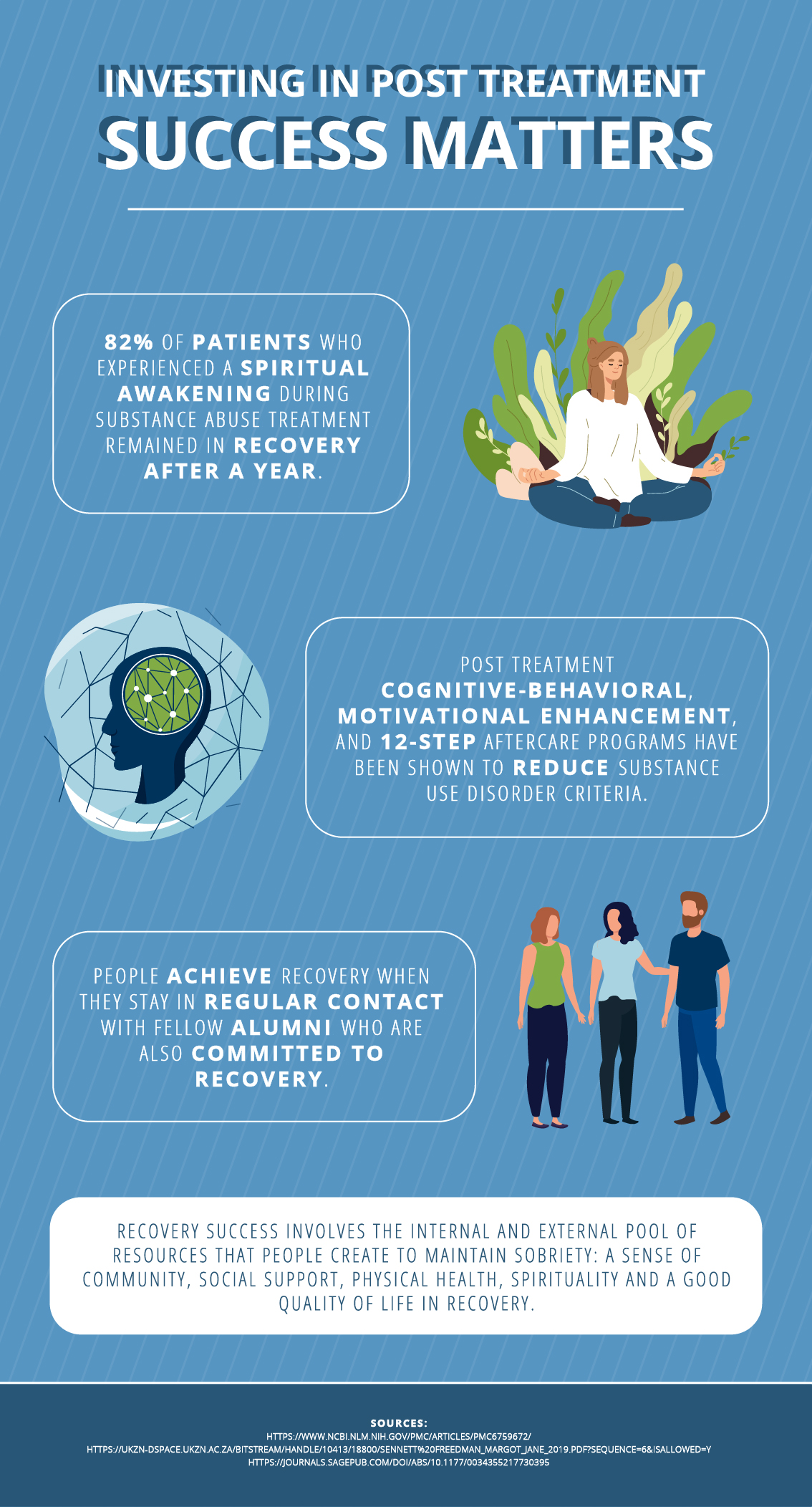Aftercare Services
Every aftercare plan is tailored specifically for each individual who completes our program. Below are several options for aftercare that we assist in coordinating:
Sober Living
Also known as a halfway house, transitional living, or recovery residences, these are usually apartments or houses offering support and establishing a sense of community in early recovery. Houses are usually monitored by house managers or behavioral health techs who administer drug and alcohol tests and ensure that residents follow the rules of the house. Most houses require residents to keep the home clean, abide by a curfew, attend a set amount of 12 step or other support group meetings, and most importantly, remain clean and sober. The goal of sober living is to help the individual learn how to live a healthy life while staying sober. While sober living is not usually covered by insurance, our aftercare coordinators will help find a house that works within the individual’s means.
Intensive Outpatient / Outpatient Treatment Programs
Partial hospitalization programs and intensive outpatient programs are less intensive than residential addiction treatment programs. These programs, which last for 4-6 weeks, become an option once an individual has completed a residential or inpatient treatment program but may still benefit from the support provided by a structured addiction treatment program. Patients may also attend an outpatient program in conjunction with a sober living home arrangement or living at home. Typically, intensive outpatient consists of one 3-hour group session at least three times a week. In addition, one individual session is completed with a therapist weekly. With programming also comes additional accountability, so patients are screened for drugs and alcohol multiple times a week. When patients become more comfortable navigating their recovery, they transition into a fully outpatient treatment program consisting of a single 3-hour group session and a weekly individual session. They continue to have drug and alcohol screenings throughout this time. Intensive outpatient and outpatient facilities work with insurance providers, while our aftercare coordinators will work to find programs that work best for the patient’s policy.
Individual Therapy
Individual therapy allows patients to work one-on-one with a therapist. This typically occurs once a week, but many therapists will adjust meeting times to suit the patient’s needs. The primary benefit of this aftercare plan is having a therapist available who focuses specifically on the needs of the individual, which allows maximized outcomes for the encounter. Many therapists work with insurance, or alumni coordinators will work to find one who works best for the individual’s policy.
Psychiatric Follow-Up
Many times, psychiatric follow-ups are important when managing medications. By establishing a working relationship with a psychiatrist, patients ensure they keep up with psychiatric medications and can speak with a doctor to monitor their progress if any changes are needed. Aftercare coordinators can find a psychiatrist who accepts and works best with an individual’s policy and make the transition easier for the patient.
